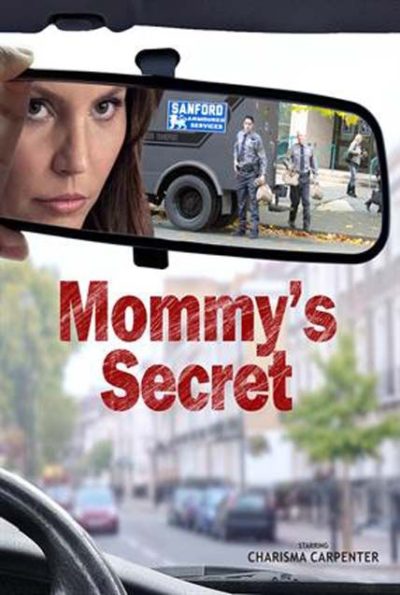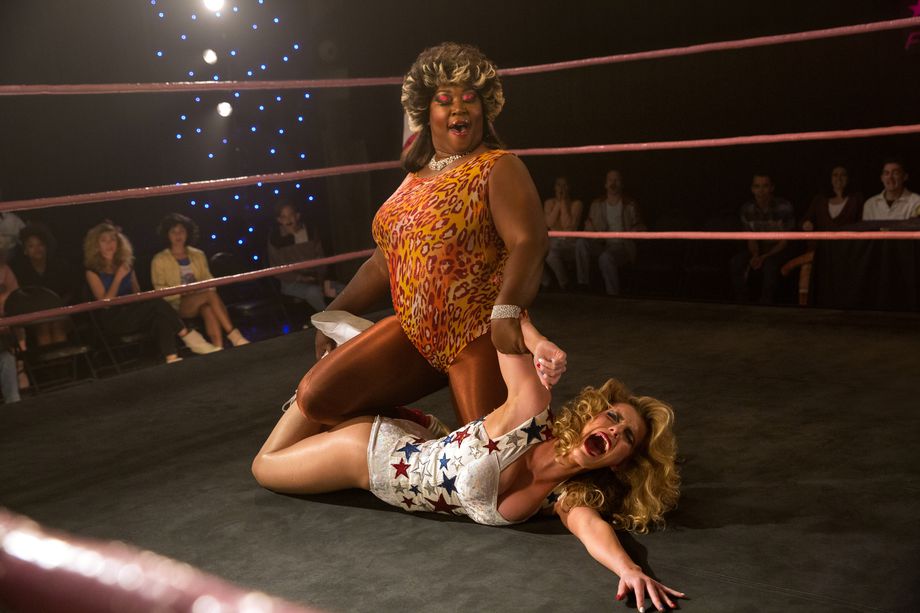 ★★★½
★★★½
“Black to basics.”
Thanks to Dieter for pointing me in the direction of this series, whose 24 episodes feel like a bit of a throwback to the days when watching anime felt hard-edged and dangerous, almost a subversive act. Mind you, this actually came out in 2006, so I guess it’s actually something of a throwback, full stop. [Random aside of no relevance to anything much: startled to realize today it’s more than eight years since Salt came out. Would have sworn it was only about three, tops] It’s hyper-violent, clearly for mature viewers only, and its multiple action heroines possess generally poor attitudes. Clearly up my street!
It takes place in what I’m going to assume is a somewhat alternate reality, where the Thai city of Roanapur has become a modern-day equivalent to Tortuga, the 17th-century pirate haven in the Caribbean. It’s a free-fire zone where organized crime operates with impunity, including Japanese, Chinese, Russian, Colombian and Italian groups, along with all the necessary “support services,” from gun-runners to brothels. Lagoon Company are one such, mostly specializing in smuggling goods, people or whatever needs to be moved quietly around. Into this setting falls the unfortunate Rock (Namikawa), a Japanese salaryman on business, whose ship is boarded by Lagoon, and he is taken hostage. After his company abandons him, to conceal the shady business they were doing, he joins Lagoon as an accountant-interpreter-negotiator-factotum. He’s in for a culture shock.
Leading the parade of counter-heroines is the Chinese-American Revy (Toyoguchi), who is Lagoon’s main enforcer, and loves her job, which she carries out enthusiastically, with the slightest provocation. She’s a fascinating character: Revy has absolutely no scruples about blowing away anybody who gets in her way, and in “normal” society would be far beyond the pale. However, in Roanapur, she’s just one among a myriad of similar types – there, scruples are likely to get you killed – and her unswerving loyalty to the rest of Lagoon, and Rock in particular, are a redeeming quality. She prefers to wield, with extreme prejudice and skill, a pair of modified Beretta 92FS’s, and Revy’s ambidextrous skill has earned her the nickname “Two Hand” around town.
 If she were the only candidate, this might end up being a bit of a borderline entry, but over the 24 episodes in the two series (there’s another five-episode arc I haven’t seen, Roberta’s Blood Trail, which came out in 2010), Revy is joined by a number of other, morally ambiguous women, all of whom are more than comfortable with firearms:
If she were the only candidate, this might end up being a bit of a borderline entry, but over the 24 episodes in the two series (there’s another five-episode arc I haven’t seen, Roberta’s Blood Trail, which came out in 2010), Revy is joined by a number of other, morally ambiguous women, all of whom are more than comfortable with firearms:
- “Balalaika” – the pseudonymous head of Hotel Moscow, the Russian crime group under whom Lagoon frequently operate. She’s a veteran of the Soviet occupation of Afghanistan, which left her with serious burns. She got her name from the sniper rifle which was her weapon of choice, and often calls upon her ex-Army colleagues when reinforcements are needed.
- Eda – a drinking buddy of Revy, she’s a nun in the Church of Violence a.k.a. the Rip-off Church. They are perhaps the premier gun-running outfit in Roanapur, who count Lagoon among their customers, and you interfere with the Church or its leader Yolanda, at your own peril.
- Roberta – the maid of the Lovelace family, one of the leading South American cartels. When its scion, Garcia, is kidnapped, Roberta goes on the hunt. Turns out she’s actually a former FARC guerrilla, who had been trained as an assassin in Cuba, and proves capable of fighting Revy to a time-limit draw.
- Gretel – one of two Romanian orphans, who may be the most screwed-up characters in the whole show, due to their background in child porn and worse. [‘Snuff said, shall we say…] While life is generally cheap in this series, she and her brother Gretel take sadistic and visceral pleasure in torturing their victims, extreme even for this show.
- Yukio Washimine – daughter of a yakuza boss. She takes over the group after the incumbent is killed by Balalaika, despite Rock’s efforts to prevent this.
There are all, in their own way, interesting (if largely damaged, in some cases severely) characters, who have enough potential that they could each merit their own series. Add them to Revy, and its an impressive line-up, even if some only appear for a couple of parts. The structure of the series generally has each arc occupying two episodes, though the Washimine storyline occupies the final six. It’s a good approach, allowing for a bit more expansion than the 25-minute format usually permits. My main gripe is the near-total lack of character development over the two seasons. Revy, Dutch and just about everyone else are the same at the end of the show as at the beginning. There’s no sense they’ve learned anything from their experiences, and even Rock has simply settled into his new life with barely a ripple. The show seems more interested in their past, than their future.
It is still a lot of fun to watch – admittedly, you need to suspend your disbelief in the way gun battles work. But if, like me, you’re a fan of John Woo films like A Better Tomorrow (an obvious and admitted influence), then the remarkable invulnerability to bullets shown by Revy, etc. will not be an issue. Having cut my anime fandom teeth on the likes of Wicked City and Vampire Hunter D, this plays like the organized crime equivalent, and provides an enjoyable blast from the past.
Dir: Sunao Katabuchi
Star (voice): Megumi Toyoguchi, Daisuke Namikawa, Tsutomu Isobe, Mami Koyama






 I am a loner. A destroyed woman. A woman destroyed by people… I have a choice – to kill myself or to kill others. I choose TO PAY BACK MY HATERS. It would be too easy to leave this world as an unknown suicide victim. Society is too indifferent, rightly so. My verdict is: I, Olga Hepnarová, the victim of your bestiality, sentence you to death.
I am a loner. A destroyed woman. A woman destroyed by people… I have a choice – to kill myself or to kill others. I choose TO PAY BACK MY HATERS. It would be too easy to leave this world as an unknown suicide victim. Society is too indifferent, rightly so. My verdict is: I, Olga Hepnarová, the victim of your bestiality, sentence you to death. Playing somewhat like a more brutal version of Fatal Attraction, this sees Ray (Norlén) help out the girl next door, Tara (Dickinson) with some heavy suitcases she’s trying to move into her car. From this eventually stems a one-night stand between the pair, made all the more unfortunate by Ray’s girlfriend, Maddy (Wehrle) being stranded by the side of the road with a flat, while the pair do the dirty deed. Ray then discovers Tara’s darker side: and when I say “darker side”, I mean she makes Alex Forrest of Fatal Attraction look like a bunny-boiling beginner. With the aid of a condom from their dangerous liaison, she frames him for the rape/murder of his boss, forcing him to help her get rid of the body. And Tara is only getting warmed up. Wait until she gets her hands on Maddy…
Playing somewhat like a more brutal version of Fatal Attraction, this sees Ray (Norlén) help out the girl next door, Tara (Dickinson) with some heavy suitcases she’s trying to move into her car. From this eventually stems a one-night stand between the pair, made all the more unfortunate by Ray’s girlfriend, Maddy (Wehrle) being stranded by the side of the road with a flat, while the pair do the dirty deed. Ray then discovers Tara’s darker side: and when I say “darker side”, I mean she makes Alex Forrest of Fatal Attraction look like a bunny-boiling beginner. With the aid of a condom from their dangerous liaison, she frames him for the rape/murder of his boss, forcing him to help her get rid of the body. And Tara is only getting warmed up. Wait until she gets her hands on Maddy… This low-key Lifetime movie stars Carpenter as a literal soccer mom, Anne Harding, right down to the minivan she drives, taking daughter Denise (Grey) to her practice. Denise is a hot prospect, with college scholarships beckoning. However, life for the rest of the family is not so smooth. Anne lost her husband and is in financial difficulties, mostly because of the never-ending gambling debts run up by her other child, Kyle (DiMarco) to local thug Quinlan (Mitchell). Anne has tried to help, only to find herself robbing banks on behalf of the boss. It helps that she wears a fake beard and mustache, so the police are looking for completely the wrong gender. But it takes its toll on an increasingly-twitchy Anne, with Denise eventually putting together the pieces to realize her mother is responsible for the recent crime spree.
This low-key Lifetime movie stars Carpenter as a literal soccer mom, Anne Harding, right down to the minivan she drives, taking daughter Denise (Grey) to her practice. Denise is a hot prospect, with college scholarships beckoning. However, life for the rest of the family is not so smooth. Anne lost her husband and is in financial difficulties, mostly because of the never-ending gambling debts run up by her other child, Kyle (DiMarco) to local thug Quinlan (Mitchell). Anne has tried to help, only to find herself robbing banks on behalf of the boss. It helps that she wears a fake beard and mustache, so the police are looking for completely the wrong gender. But it takes its toll on an increasingly-twitchy Anne, with Denise eventually putting together the pieces to realize her mother is responsible for the recent crime spree. My name is Alyse Winters. I used to be a
My name is Alyse Winters. I used to be a  The German-Canadian co-production is split into two feature-length parts – “Dragonfly” and “Energy” – but is absolutely a single entity, so that’s how it’ll be covered here. I was braced for something truly dreadful, after reading some particularly scathing reviews, and seeing no less than
The German-Canadian co-production is split into two feature-length parts – “Dragonfly” and “Energy” – but is absolutely a single entity, so that’s how it’ll be covered here. I was braced for something truly dreadful, after reading some particularly scathing reviews, and seeing no less than  The 16-part series proved an unexpected sleeper hit in its native land, more than doubling the audience from debut to finale. This is all over the place in terms of genre, with comedy, thriller, romance and action threads. While they aren’t equally successful, it does a pretty decent job of managing most of them, and is surprisingly accessible for a Western audience. The heroine is Do Bong-soon (Park B-Y), the latest in a matriarchal line of very strong women. She has been brought up to keep her power suppressed, due to the potential issues it can cause; Bong-soon has also been warned that if she misuses them, and hurts an undeserving person, they will go away. [Let’s not worry too much about how this presents an easy solution: slap one innocent, and she would become just like everyone else…]
The 16-part series proved an unexpected sleeper hit in its native land, more than doubling the audience from debut to finale. This is all over the place in terms of genre, with comedy, thriller, romance and action threads. While they aren’t equally successful, it does a pretty decent job of managing most of them, and is surprisingly accessible for a Western audience. The heroine is Do Bong-soon (Park B-Y), the latest in a matriarchal line of very strong women. She has been brought up to keep her power suppressed, due to the potential issues it can cause; Bong-soon has also been warned that if she misuses them, and hurts an undeserving person, they will go away. [Let’s not worry too much about how this presents an easy solution: slap one innocent, and she would become just like everyone else…] Stylistically and in terms of its general tone and vision, this second volume of the author’s A Murder in the Mountains mystery series, set in contemporary West Virginia, has much in common with the first book, Miranda Warning. It’s also set in the fictional small town of Buckneck (near real-life Point Pleasant, in west-central WV near the Ohio River), and a number of the characters from the first book are here as well, especially protagonist Tess Spencer and the family she married into. We have the same leavening of humor, the same realistic characterization, and the same affectionate evocation of modern mountain life.
Stylistically and in terms of its general tone and vision, this second volume of the author’s A Murder in the Mountains mystery series, set in contemporary West Virginia, has much in common with the first book, Miranda Warning. It’s also set in the fictional small town of Buckneck (near real-life Point Pleasant, in west-central WV near the Ohio River), and a number of the characters from the first book are here as well, especially protagonist Tess Spencer and the family she married into. We have the same leavening of humor, the same realistic characterization, and the same affectionate evocation of modern mountain life. It has been a while since I’ve scraped the bottom of the barrel of Mexploitation cinema: all those telenovelas don’t count, generally being well-produced and with reasonable production values. Just
It has been a while since I’ve scraped the bottom of the barrel of Mexploitation cinema: all those telenovelas don’t count, generally being well-produced and with reasonable production values. Just  I don’t typically binge-watch shows, being generally content with an episode or two per week. For the second season of GLOW, Netflix’s original series (very) loosely based on 80’s TV show Gorgeous Ladies of Wrestling, we made an exception and blitzed through the series in a couple of days. This in itself is a recommendation – with most of the episodes running barely 30 minutes, it was very much a case of “just one more…” Before we knew it, we were done, and left with a vague feeling of emptiness and slight regret at having burned the 10 episodes so quickly.
I don’t typically binge-watch shows, being generally content with an episode or two per week. For the second season of GLOW, Netflix’s original series (very) loosely based on 80’s TV show Gorgeous Ladies of Wrestling, we made an exception and blitzed through the series in a couple of days. This in itself is a recommendation – with most of the episodes running barely 30 minutes, it was very much a case of “just one more…” Before we knew it, we were done, and left with a vague feeling of emptiness and slight regret at having burned the 10 episodes so quickly.